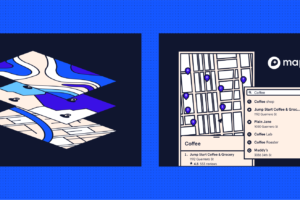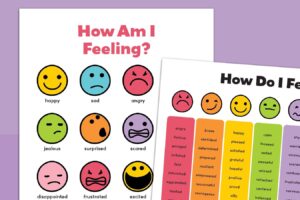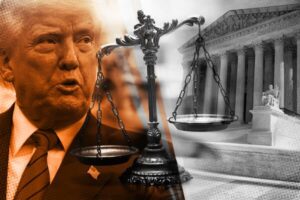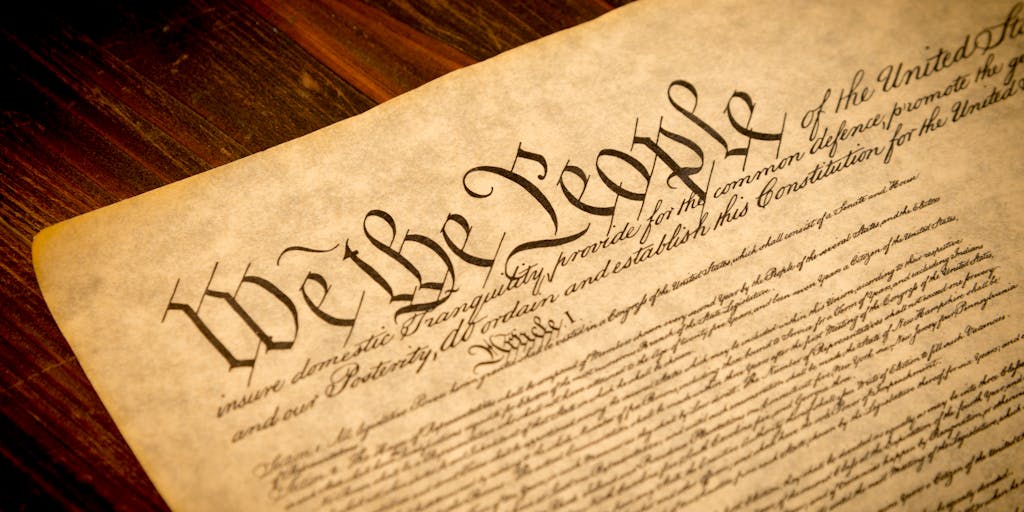
Teachers Learn the Art of Teaching Civics in a Hot-Button Age
Melanie Fisher understands why K-12 teachers might be nervous to tackle civics and the Constitution in their classrooms. In an era when Americans of every ideological stripe, at all levels of public life, clash over how to govern, fundamental subjects like voting rights and civil liberties can quickly become flashpoints. “A lot of things being brought up in a classroom can feel scary for educators,” she said.
Fisher teaches fifth grade in Utah’s Jordan School District, a conservative-leaning area in Salt Lake County. She works in as much civics as she can alongside the other subjects she’s required to teach her students. She emphasizes staying informed and “being able to model civil discourse with them,” she said, “which is so needed in classrooms today.”
So far, Fisher has not had run-ins with parents or community members over what she teaches. Like many K-12 teachers, she draws on the Center for Civic Education’s widely used “We the People” program, which works with all 50 states’ curriculum standards. But she also uses a combination of academic knowledge and pedagogical skills she honed at Utah Valley University’s summer Constitutional Literacy Institute.

Run by the university’s Center for Constitutional Studies, the institute brings together 20 to 25 participants, so far mostly from Utah, for an intensive weeklong program that emphasizes expertise over partisanship. Mornings feature expert lectures on topics like federalism and the separation of powers, while afternoons focus on classroom advice and strategies shared by veteran educators. As working teachers, participants also learn from each other as well as from the instructors.
The center takes a “maniacally nonpartisan” approach to constitutionalism, according to Scott Paul, executive director. “We stick with an academic approach and try to stay away from polemics.” The summer institute’s instructors include scholars and legal experts “representing an array of political and ideological perspectives and academic philosophies,” Paul said.
Not up for debate is the centrality of the Constitution. “We view civics through a constitutional lens,” Paul said. “We’re always trying to connect things back to our constitutional tradition, the constitutional order, and certainly constitutional principles, if not the text itself.”

This year’s program, which ran June 23 to 27, included morning sessions on the Constitutional Convention of 1797, the Declaration of Independence and the Bill of Rights, “Federalism and the Founding” and “The Nature of the Federal Union Today,” among other building-block subjects. Afternoons included training on how to present specific, sometimes charged topics such as the Civil Rights Act of 1964 and the Great Compromise, which gave the states proportional representation in the House of Representatives but two votes each in the Senate. The final day of the institute featured “Theories of Constitutional Interpretation” and a lecture on civility by a retired D.C. Circuit Court judge, along with a session on “Civility in the Classroom.”
Participants say that the combination of academic and practical training makes it easier to engage students and also to meet potential challenges. In her fifth grade classroom, Melanie Fisher now incorporates age-appropriate activities, like having the class re-enact the Constitutional Convention and learn about the delegates as real people, with flaws and opinions. She encourages students to connect constitutional rights to their own lives, and to explore other viewpoints respectfully.
“Nothing we’re doing here or talking about can’t be discussed at home,” she said. The 10- and 11-year-olds she teaches tend to accept the idea that people often disagree about what the Constitution means. “However you feel about it is OK, and then we move on,” she said. “As students get older, that becomes more controversial.”
A strong foundation in the subject can be a teacher’s best defense against challenges or accusations of bias. Brittany Holman, a clinical faculty associate in the history department at Brigham Young University’s College of Family, Home, and Social Sciences, is a longtime teacher of government and American history in Utah’s Alpine School District. Like Fisher, she attended the institute in 2020 and now takes part as an instructor and adviser.
“I’ve seen that shift of parents coming in with some preconceived notions of, ‘maybe schools are teaching this or they’re teaching that,’” Holman said. “The biggest thing is using primary documents to show that this isn’t me putting that thought, this is what the Constitution says, and how was that being interpreted? Here’s a case that says this, but here’s a case that says something different.”
Founding Documents
To be effective, civics education requires a solid grasp of the founding documents, ideas and events behind the American system of government. Teachers, not to mention students and the general public, need access to reliable resources about the Constitution and constitutionalism.
Enter the Quill Project, a digital research-and-education platform developed by Pembroke College, Oxford, in partnership with Utah Valley University. Quill’s research-rich, open-access resources, all available online, include a U.S. Federal Collection about the drafting of the Federal Constitution (1787), the Bill of Rights (1789), and the Reconstruction Amendments (1864-70). The Quill team has also been documenting the many conventions — more than 230 since 1776 — that led to the individual U.S. state constitutions.

“The broader agenda is the history of deliberative democracy and deliberative institutions and trying to give people a sense of how that worked across time,” said Nicholas Cole, the project’s director and a senior lecturer at Pembroke. “That’s something that’s very difficult to teach, and that’s part of the reason to try to do it.”
The Pembroke-UVU partnership might seem peculiar, given the differences and distance between the two institutions. Highly selective Pembroke dates back to 1624 and has a few hundred students. Open-enrollment UVU was founded in 1941 and has more than 46,000 students. But the association carries on a long tradition of Anglo-American constitutionalism. The drafters of the U.S. Constitution were steeped in a British legal tradition going back to Magna Carta. Pembroke houses the papers of Sir William Blackstone, the conservative 18th-century English legal theorist and politician whose Commentaries on the Laws of England partly informed the Founding Fathers’ work. (They shared his interest in individual rights but embraced revolution and rejected monarchy.)
Work on the Quill Project began around the time Utah Valley established its constitutional studies center in 2011. Cole happened to be friends with UVU’s then-president, Matthew Holland, and they saw an opportunity to join forces to promote what Holland called “engaged learning.”
UVU could give its students a chance to take part in serious scholarship, while the Quill Project could get help testing software and doing archival work as well as access to U.S. grants. Cole travels to Utah every summer to teach at and bring back insights from the institute.
The need for the kind of resources Quill is developing extends far beyond classrooms. In the United States and beyond, “we live in an age where trust in democratic institutions is falling,” Cole said. “Because young people no longer learn the history of their institutions, they look at institutions that are the product of compromise, but all they see are compromised institutions.”
From Consensus to Neglect
Civic education used to be a consensus issue, so taken for granted it verged on boring, according to Jane C. Lo, an associate professor in the Department of Education at Michigan State University’s College of Teacher Education. She’s also a former high school government and economics teacher.
“Everybody understood that there are foundational things kids need to understand — three branches of government, the rule of law, the social contract,” Lo said. “There was actually bipartisan agreement for a long time about what needed to be taught.”
But civics education fell into neglect over the past two or three decades, she said. The No Child Left Behind era emphasized math and literacy skills, sometimes at the expense of time and resources for social studies. State curricula and testing requirements don’t necessarily prioritize civics. In an always-online environment, teachers, students and parents are inundated by what she calls an “overwhelming amount of information that happens with social media,” Lo said. “Teachers know they have a responsibility to help young people make sense of what they’re being exposed to online, but that also means teachers themselves have to make sense of what they’re seeing on their own feeds.”
Now teachers also must reckon with the current state of public life in the U.S.
“The political environment exacerbates what was already neglected in elementary schools, with teachers who were already strapped for time really feeling like they have no motivation to address it,” Lo said. “The rhetoric right now is so combative that many teachers don’t feel comfortable” using formerly tried-and-true strategies. For instance, she said, some now steer clear of using current campaigns and elections as case studies, and turn instead to historic elections to explore the democratic process.
An Opening for Civics
In spite of those challenges, Donna Phillips sees an opening for civics education in the current environment. She’s the president and CEO of the Center for Civic Education, a nonprofit founded in 1965 to promote civic education and provide resources and training, including “We the People,” for teachers nationwide.
A former social studies teacher and school administrator, Phillips knows firsthand how easily social studies, including civics, get edged out by funding and assessment standards that prioritize math and reading skills. In an effort to boost literacy outcomes, schools focus less on fiction and more on nonfiction and expository writing. Civics education trains students to read, write, speak and listen — essential skills for literacy as well as democracy. “We’re seeing an opportunity to show that if you do civics well, you will hit those literacy outcomes,” Phillips said.
It pays to start early, before high school. “When students learn civics earlier on, the knowledge will sink in earlier on, and there’ll be these huge gains,” she said.
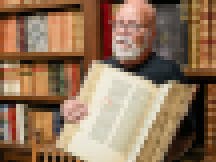
Good lesson plans supported by strong knowledge of the subject matter won’t save democracy on their own. But for Doug Welton, they’re essential building blocks. Welton, a Republican, represents Utah District 65 in the Utah State Legislature, and teaches high school debate, among other subjects, in Utah’s Nebo School District. He’s also involved with UVU’s summer institute.
Civics permeates much of what happens in Welton’s classroom, he said, especially in debate classes, where students learn the rules of respectful argument. “When we talk about engagement, we talk a lot about constitutional principles,” he said.
As an elected representative, he’s seen how those principles play out at a grassroots level and how civics knowledge can affect communities. A few years ago, when Welton was a town councilman, a group of teens wanted to hold an unofficial Black Lives Matter protest in a local park on the Fourth of July. It was a tense time in the state and the country, and some residents pushed back on social media.
“People were like, ‘How can you let them do this, especially on the Fourth of July?’,” Welton recalled. “And I said, ‘The Constitution actually provides freedom of speech for people to do that.’” That argument got through, he said. The teens’ First Amendment-protected protest went forward — across the park from a group who decided to exercise their Second Amendment rights and showed up armed in case of trouble. (Luckily there wasn’t any, Welton said.)
During this past legislative session, he co-sponsored a bipartisan bill to increase Utah’s high-school government and civics requirement from a half-credit to a full credit. The bill passed.
“It doesn’t matter how much math or science or anything else you know if society falls apart because we can’t engage in meaningful dialogue when we disagree,” he said.
Source link

